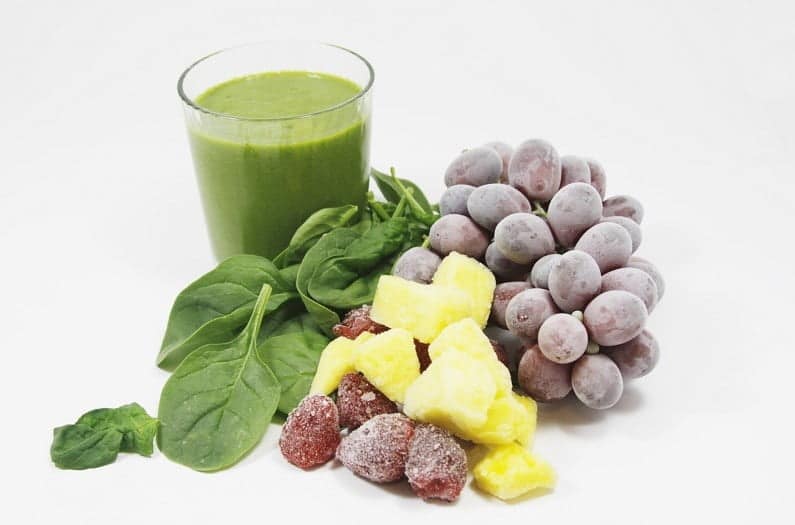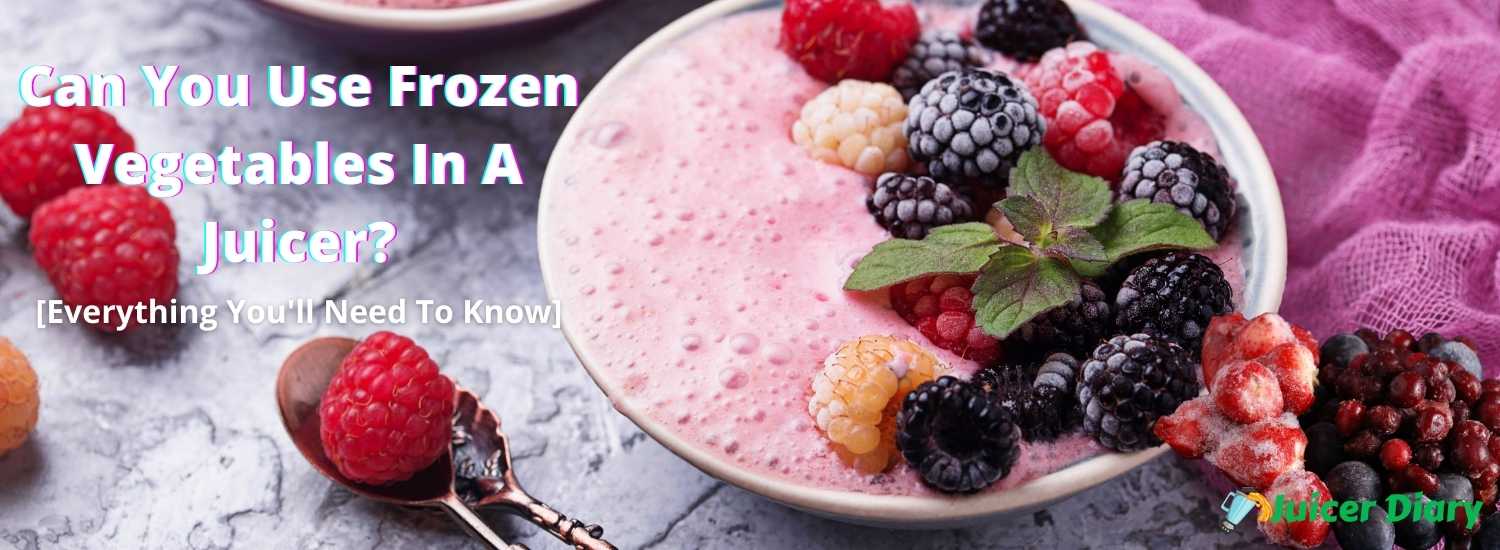Are you wondering if you can use frozen vegetables in the juicer and try different smoothies? It's an important discussion when it comes to juicing and I was doubtful about this too. So, I decided to do my research on this, and here is what I've learned:
Yes, you can juice frozen vegetables in your juicer, but only after you have thawed them out completely. Regardless of what type of juicer you're using, thawing will help it achieve a better extraction without worrying about any damage. You should also look at the manufacturer manual for specific instructions.
However, there are some other details you should know about juicing frozen vegetables and the exact way to do it successfully using the juicer.
So, before you leave let me elaborate on this topic in a few sections below.
Are Frozen Fruits and Vegetables as Healthy as Fresh Produce?
When looking at this, I was overwhelmed by a lot of details available out there. Needless to say, there are strong arguments on all sides of this debate.
Indeed, a large group of people claims that frozen fruits and vegetables are healthier because they are often picked fully ripened. And, following this, they are transferred to the freezing process within 48 hours. Perhaps this helps the bulk of nutrients to be locked in there.
On the flip side, fresh foods are mostly collected a few weeks ahead of their harvesting season. This is done to provide them enough time to mature until they finish their journey to the retailers. During this lapse of time, the quality of the foods may decline, which none of us wants when making fresh juices.
But the majority of people who criticize frozen fruits and vegetables are seen skeptical of the blanching method by which the content is passed on to boiling water for a short while. This step is carried out to kill any germs the fresh vegetables will have and to keep their color and flavor locked up.
However, organic enzymes present in the vegetables could be lost during this stage. Some studies have also shown that frozen vegetables contain about 5-10 percent fewer vitamins and minerals compared to their fresh counterparts. Let alone the fact that frozen foods are shipped and travel a thousand miles, some people love sticking to fresh foods in any form.
Having said all of these, I would suggest collecting foods directly from local farms if accessible or at least trying to buy them fresh in a farmer's market. This approach will minimize the length of time when those vegetables are harvested and then thrown into your juicer.
However, when you have no other choice than to buy frozen vegetables, look for one:
- that is free of additives
- that haven't undergone blanching
- aren't frozen long before they expire
- that mentioned IQF on its package
Note:
IQF refers to Individually Quick Frozen, a specialized freezing method that guarantees that the food is preserved with good nutrition and they're not lost minutes after being thawed.
Now, let's move onto the next section and see some other benefits and drawbacks of juicing frozen vegetables.
Advantages Of Using Frozen Vegetables
Go Beyond Seasonality
The biggest benefit of juicing frozen foods is that you can keep in touch with your favorite vegetables all year round. Foods when frozen usually last longer, means you have more choices to enjoy them anytime you desire.
Moreover, if your region doesn't grow a particular vegetable, you have the option to buy them frozen shipped from other countries to your local shop.
Store Vegetables You Need Occasionally
You can get sick and tired after drinking all those fruit juices every morning. Sometimes you might catch the mood for vegetable juices only to find that they aren't available at hand.
This won't be an issue given that you can store frozen vegetables at home and enjoy on the day you lost an appeal to your lip-smacking purple smoothie.
Drawback Of Using Frozen Vegetables
Taste Of The Juice May Change
Although you might be okay with it, some people claim that juices made from frozen vegetables sometimes taste a little bland. It becomes obvious, especially when you're used to consuming fresh vegetables and suddenly switched to frozen products.
Flavor Could Be Weakened
As part of the thawing process, the vegetable juices may dissipate with the water it produces. And the flavor may disappear with it as well. Again, it's down to personal preference.
You can blend some fresh ingredients with its frozen version and then toss them mixture in the juicer. This will help restore the original flavor and resolve the issue at hand.
In connection to this, let see the video review below to get more ideas -
How To Juice Frozen Vegetables?
Now let's have a look at the below steps when trying to make juices from frozen vegetables, following them in the given order.
Step 1: Thawing Frozen Vegetables First
In the beginning, you should always fully defrost frozen vegetables. This very step will allow your juicer to deliver a higher yield from the produce.
If you're eager to know, this happens as their cell membranes crumble when thawing begins leading them to release more juice. Although the spongy texture that arises in this phase is not ideal for cooking, it makes juicing a lot easier.
Depending on the quantity, frozen vegetables thaw earliest (with or without the package) when it is submerged in cool water. The process may take 30 minutes to an hour.
Step 2: Making Puree Before Throwing Your Veggies Into The Juicer
One way to extract more juice from is to puree your defrosted vegetables before juicing. The procedure is quite simple. Just transfer thawed veggies to a blender/ food processor and puree them in a high setting until they seem soft. Based on your machine, the process could take up to 1 or 2 minutes.
You might be lucky enough to own a high-end blender, especially that generates at least 2,000 strokes per minute. In that case, nothing wrong if you want to puree your vegetables right from the fridge.
Step 3: Try Not to Peel Every Produce Yet Cut Them Into Pieces
Some vegetables like cucumbers and beetroots have sizable nutrients in their skin and so consider this before you peel every food recklessly.
That said, cutting your vegetables into pieces is always necessary. To be specific, try to keep them even and around 1 cm3 in size to help the juicer come up with more yield.

Final Words
Hopefully, by reading this article you're now clear that using frozen vegetables in your juicer is totally manageable. You just need to be a little mindful of the things I've just shared above.
So, whether it is frozen or not, make sure that you're getting the required intake of nutrients every single day, and in the end, that matters the most.

